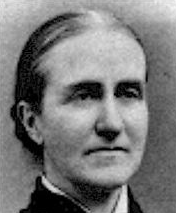A Quote by Jeremiah Burroughs
Thus, a godly man wonders at his cross that it is not more, a wicked man wonders his cross is so much.
Related Quotes
Most of the world's great souls have been lonely. Loneliness seems to be one price the saint must pay for his saintliness... Always remember: you cannot carry a cross in company. Though a man were surrounded by a vast crowd, his cross is his alone and his carrying of it marks him as a man apart. Society has turned against him; otherwise he would have no cross. No one is a friend to the man with a cross.
The man with a cross no longer controls his destiny; he lost control when he picked up his cross. That cross immediately became to him an all-absorbing interest, an overwhelming interference. No matter what he may desire to do, there is but one thing he can do; that is, move on toward the place of crucifixion.
It is so wonderful to our neurologists that a man can see without his eyes, that it does not occur to them that is just as wonderful that he should see with them; and that is ever the difference between the wise and the unwise: the latter wonders at what is unusual, the wise man wonders at the usual.
If God wishes to be born as man and to unite mankind in the fellowship of the Holy Ghost, He suffers the terrible torment of having to bear the world in its reality. It is a crux; indeed, He Himself is His own cross. The world is God's suffering, and every individual human being who wishes even to approach his own wholeness knows very well that this means bearing his own cross. But the eternal promise for him who bears his own cross is the Paraclete.
In the Cross is salvation; in the Cross is life; in the Cross is protection against our enemies; in the Cross is infusion of heavenly sweetness; in the Cross is strength of mind; in the Cross is joy of spirit; in the Cross is excellence of virtue; in the Cross is perfection of holiness. There is no salvation of soul, nor hope of eternal life, save in the Cross.
To act and act wisely when the time for action comes, to wait and wait patiently when it is time for repose, put man in accord with the rising and falling tides (of affairs). So that with nature and law at his back, and truth and beneficence as his beacon light, he may accomplish wonders. Ignorance of this law results in periods of unreasoning enthusiasm on the one hand, and depression on the other. Man thus becomes the victim of the tides when he should be their Master.
The so-called godly man may be more likely to do serious wrong than a man who deeply questions himself. The 'godly man' often zealously follows religious precepts that, in the end, justify an unjust injury to others, while the questioning man, addressing his own conscience, may have the better chance to consider all the circumstances and come to the just decision.






























